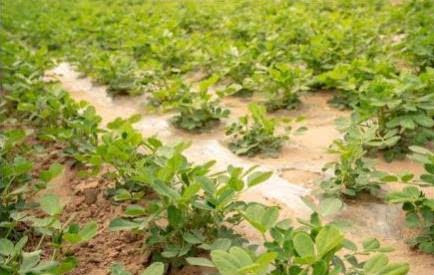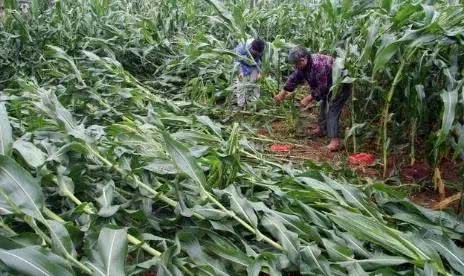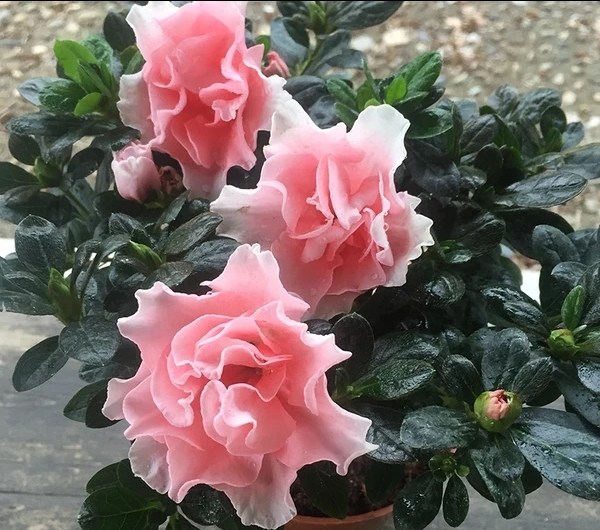Peanut underground pest threat what method not only insecticidal but also low pesticide residues?

Farmers who grow peanuts know that the biggest headache in the process of growing peanuts is the underground pest problem of peanuts. Poor treatment of underground pests will not only reduce the yield of peanuts but also affect the quality of peanuts. However, in the process of preventing and controlling peanut pests, we should also pay attention to avoid excessive pesticide residues, which will affect the quality of peanuts.
Common underground pests of peanuts
Mole cricket
Mole cricket is one of the underground pests of peanut, especially in North China. Mole cricket mainly bites the underground buds of peanuts, and because the mole cricket in the underground activity process will cause the soil to break away from the peanut roots and cause the death of peanut seedlings.
Grub
Grubs can be said to be one of the most serious underground pests of peanuts. Grubs belong to the larvae of beetles. Grubs harm peanuts for a long time, from peanut seedling stage to peanut maturity grubs will continue to damage peanuts. In peanut seedling stage, grub will bite the rhizome of peanut seedling, and peanut will bite peanut young fruit in fruit setting stage, which will not only reduce the yield of peanut, but also cause serious decline in peanut quality.
Golden needle worm
The harm to the golden needle bug should not be underestimated. The golden needle bug mainly bites on peanut seeds, peanut seedlings and peanut roots. Resulting in uneven emergence of peanut seedlings, lack of seedlings, dead seedlings and so on.
Control methods of Peanut Underground insect pests
In the past, the prevention and control of underground pests of peanuts blindly emphasized the insecticidal effect while ignoring the pollution of pesticides, which caused not only the emergence of "poisonous peanuts", but also the pollution of water and land. It can be said that the loss outweighs the gain. Here I would like to introduce several insecticidal methods with relatively small pesticide residues.
First of all, when selecting seeds, farmers should choose suitable peanut varieties according to the characteristics of the local environment, and choose peanut seeds with strong disease resistance. In addition, if the seeds are stored for a long time, dry the seeds with peanut shells before sowing. This can play a certain role in sterilization.
Pay attention to reasonable crop rotation. Areas with relatively mild disease can be rotated for one year, and serious areas should be rotated every two years to avoid repeated cropping. Winter irrigation can be taken to reduce the stock of pests. Dig deep into the land and destroy the overwintering places for insect pests. Farm manure must be matured at high temperature to reduce insect pests.
Another is the peanut seed coating method, which can effectively protect seed germination and reduce insect pests. It can also reduce the harm of aphids. Imidacloprid series or chlorpyrifos series are generally used for seed dressing. After seed mixing, it should be dried and should not be exposed to the sun.
The above comes from promoting agriculture through science.
- Prev

The right use of corn growth control drugs can increase production, but the wrong use will lead to a reduction in corn yield.
If the amount of corn boom control drug is too large, will it reduce the yield of corn? I can tell you clearly that I will. The problem of excessive amount of prosperity control drugs occurs not only in corn, but also in peanuts, wheat and rice. It's right in production.
- Next

If the azaleas are not raised in this way in summer, they will certainly dry and fall leaves.
Recently, many flower friends left a message to Cheng Cheng, saying that after the azaleas changed pots, the overall leaf condition was not good, and there were a lot of dried leaves. What is the reason for Cheng Cheng? Cheng Cheng tells you that the rhododendron itself is delicate and adaptable.
Related
- Wuhan Hospital Iron Tree Blooming Result Was Instantly Frightened by the Gardener Master
- Which variety of camellia is the most fragrant and best? Which one do you like best?
- What is the small blue coat, the breeding methods and matters needing attention of the succulent plant
- Dormancy time and maintenance management of succulent plants during dormancy
- Minas succulent how to raise, Minas succulent plant pictures
- What are the varieties of winter succulent plants
- How to raise succulent plants in twelve rolls? let's take a look at some experience of breeding twelve rolls.
- Attention should be paid to water control for succulent plants during dormant period (winter and summer)
- Watering experience of twelve rolls of succulent plants
- Techniques for fertilizing succulent plants. An article will let you know how to fertilize succulent plants.

